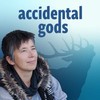
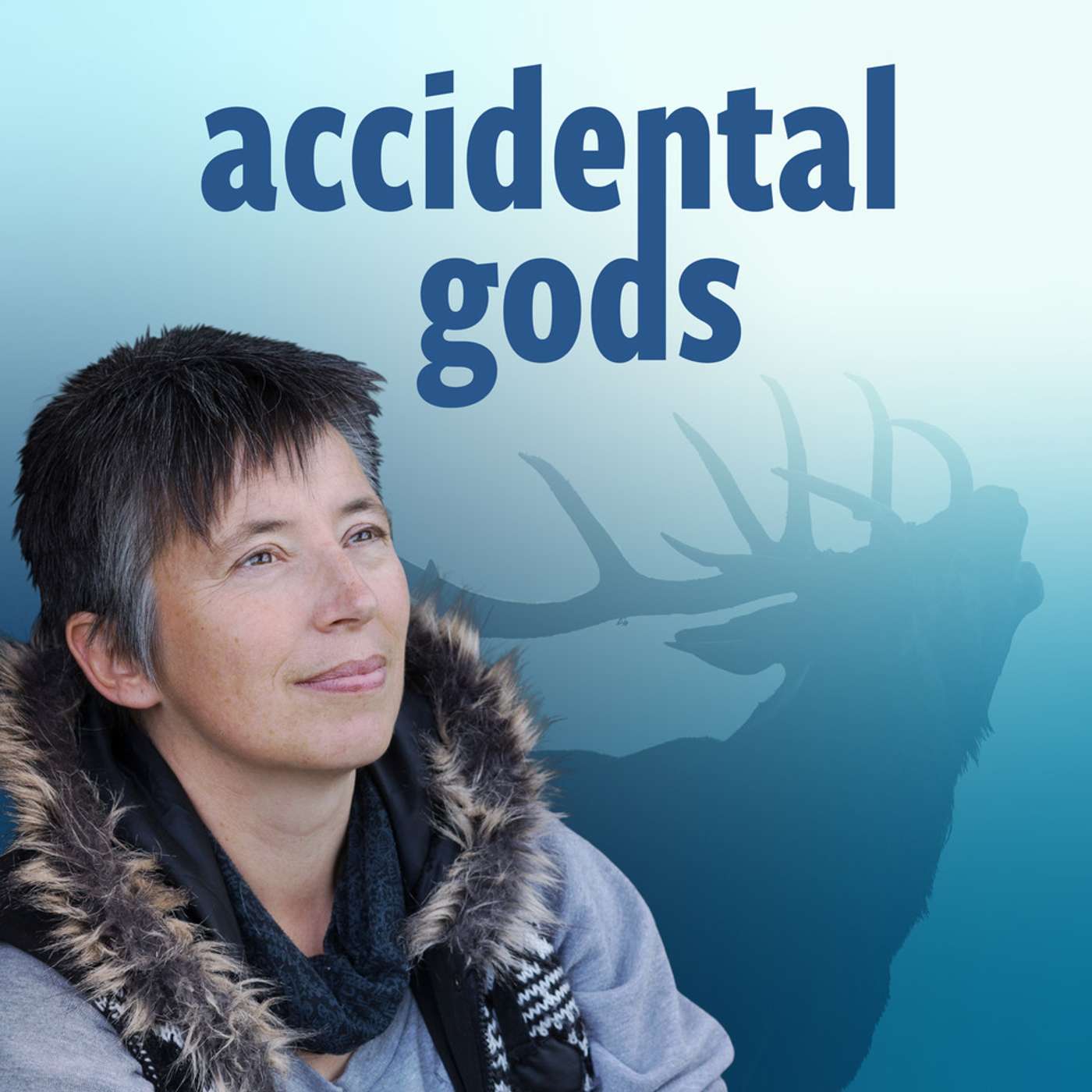
Accidental Gods
Accidental Gods
Another World is still Possible. The old system was never fit for purpose and now it has gone- and it's never coming back.
We have the power of gods to destroy our home. But we also have the chance to become something we cannot yet imagine,
and by doing so, lay the foundations for a future we would be proud to leave to the generations yet unborn.
What happens if we commit to a world based on generative values: compassion, courage, integrity?
What happens if we let go of the race for meaningless money and commit instead to the things that matter: clean air, clean water, clean soil - and clean, clear, courageous connections between all parts of ourselves (so we have to do the inner work of healing individually and collectively), between ourselves and each other (so we have to do the outer work of relearning how to build generative communities) and between ourselves and the Web of Life (so we have to reclaim our birthright as conscious nodes in the web of life)?
We can do this - and every week on Accidental Gods we speak with the people who are living this world into being. We have all the answers, we just (so far) lack the visions and collective will to weave them into a future that works. We can make this happen. We will. Join us.
Accidental Gods is a podcast and membership program devoted to exploring the ways we can create a future that we would be proud to leave to the generations yet to come.
If we're going to emerge into a just, equitable - and above all regenerative - future, we need to get to know the people who are already living, working, thinking and believing at the leading edge of inter-becoming transformation.
Accidental Gods exists to bring these voices to the world so that we can work together to lay the foundations of a world we'd be proud to leave to the generations that come after us.
We have the choice now - we can choose to transform…or we can face the chaos of a failing system.
Our Choice. Our Chance. Our Future.
Find the membership and the podcast pages here: https://accidentalgods.life
Find Manda's Thrutopian novel, Any Human Power here: https://mandascott.co.uk
Find Manda on BlueSky @mandascott.bsky.social
On LinkedIn https://www.linkedin.com/in/mandascottauthor/
On FaceBook https://www.facebook.com/MandaScottAuthor
We have the power of gods to destroy our home. But we also have the chance to become something we cannot yet imagine,
and by doing so, lay the foundations for a future we would be proud to leave to the generations yet unborn.
What happens if we commit to a world based on generative values: compassion, courage, integrity?
What happens if we let go of the race for meaningless money and commit instead to the things that matter: clean air, clean water, clean soil - and clean, clear, courageous connections between all parts of ourselves (so we have to do the inner work of healing individually and collectively), between ourselves and each other (so we have to do the outer work of relearning how to build generative communities) and between ourselves and the Web of Life (so we have to reclaim our birthright as conscious nodes in the web of life)?
We can do this - and every week on Accidental Gods we speak with the people who are living this world into being. We have all the answers, we just (so far) lack the visions and collective will to weave them into a future that works. We can make this happen. We will. Join us.
Accidental Gods is a podcast and membership program devoted to exploring the ways we can create a future that we would be proud to leave to the generations yet to come.
If we're going to emerge into a just, equitable - and above all regenerative - future, we need to get to know the people who are already living, working, thinking and believing at the leading edge of inter-becoming transformation.
Accidental Gods exists to bring these voices to the world so that we can work together to lay the foundations of a world we'd be proud to leave to the generations that come after us.
We have the choice now - we can choose to transform…or we can face the chaos of a failing system.
Our Choice. Our Chance. Our Future.
Find the membership and the podcast pages here: https://accidentalgods.life
Find Manda's Thrutopian novel, Any Human Power here: https://mandascott.co.uk
Find Manda on BlueSky @mandascott.bsky.social
On LinkedIn https://www.linkedin.com/in/mandascottauthor/
On FaceBook https://www.facebook.com/MandaScottAuthor
Episodes
Mentioned books
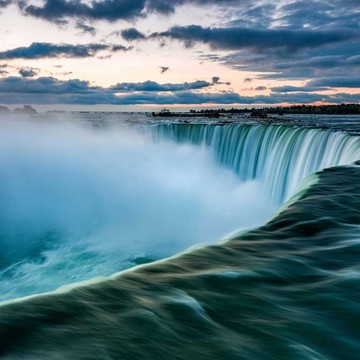
Jun 19, 2024 • 1h 6min
Taking back the Power: Weaning ourselves off fossil fuels and onto the good stuff with Howard Johns of OneZero
Today we're blowing open a route towards energy security, reduced carbon footprint and saving money - all in the way we make, distribute and use power. If each of us could minimise our own power use, we'd be a step on the way to reducing our overall carbon footprint: more, we'd be changing the ways we think of ourselves as separate from the web of life. This week's guest is long time friend of the podcast Howard Johns. Howard is an activist, author, and serial entrepreneur in the field of energy generation - of how we power our lives, keep the lights on and keep ourselves warm. Howard is now CEO of OneZero energy, a team of energy experts and digital nerds with a shared passion for getting homes off fossil fuels. One of the biggest climate actions anyone can take is to retrofit their home with four components: Solar panels, batteries, heat pumps and insulation The combination of these makes homes more comfortable, but more importantly, it saves significant amounts of money and massively reduces the carbon footprint - weaning us off fossil fuels. Howard himself has founded and led an award winning solar business, a pioneering community-owned energy company, and written a guide book to help others to do the same. He's given a TED Talk, occupied a coal mine and campaigned on energy and climate issues from inside parliament and atop treehouses, and until recently ran a large fleet of solar projects across the EU and UK.One Zero https://www.onezero.energy/Howard's website: https://www.howardjohns.net/Howard's book: https://uk.bookshop.org/p/books/energy-revolution-your-guide-to-repowering-the-energy-system-howard-johns/706009AG Episode 89https://accidentalgods.life/power-to-the-people/Indenture Hemp Insulation https://www.indinature.co/Homely Heat Pump Controllers https://www.homelyenergy.com/Any Human Power (Manda's book) https://linktr.ee/anyhumanpower
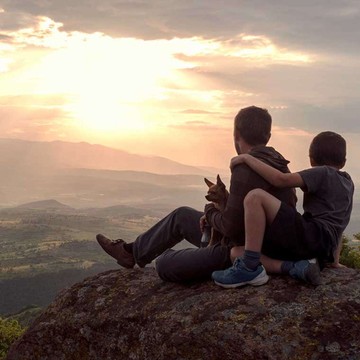
Jun 12, 2024 • 59min
The Jay, The Beech and The Limpetshell with author Richard Smyth
Our guest this week is Richard Smyth, author, crossword designer, cartoonist - and father of two young children Richard writes features, reviews and comment pieces for publications including The Guardian, The Times LiterarySupplement, The New Statesman, and New Scientist. His crosswords – both cryptic and quiz – appear regularly in New Scientist, History Today, and BBC Wildlife. He's part of the team that sets questions for BBC Mastermind, and he's a cartoonist: Private Eye, New Humanist and Claims magazines have all featured his work. He's the author of five non-fiction books of which the latest is The Jay, the Beech and the Limpetshell which is one of those captivating works that is both memoir and eulogy of a dying world. It brings together Richard's passionate love of the natural world with his care for his two young children. It's a captivating read that shuttles back and forth along the time lines, weaving Twitter comments from 'Average Dad' with items from the memoirs of old Victorian naturalists who tasted bird's eggs and considerations of how we help the generations that come after us to fall in love with a world that is going to be so, so different from when we were young - however old you are now, whatever your memories. So this is one or our more reflective, peaceful, contemplative podcasts, a paean to the worlds of our youth and a hope for the future. Enjoy!Richard's Website Richards books at Hive
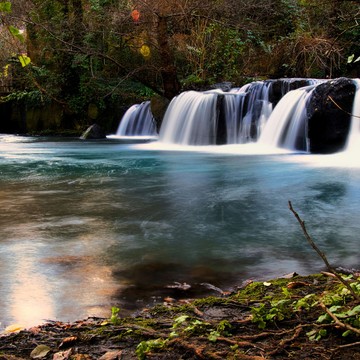
Jun 10, 2024 • 38min
Clean Air, Clean Water, Clean Politics - Election Special 2 with Baroness Natalie Bennett of the Green Party
in this second election special, we talk to Natalie Bennett (or Baroness Bennett of Manor Castle if we're going to be forma - but she said we didn't need to be) - one of two Green Party members in the House of Lords. Natalie is author of the Book 'Change Everything: How we can rethink, repair and rebuild society' - one of the essential books of our time that outlines in detail how we can create the total systemic change we need. Natalie will be back in the autumn to discuss this in more detail, but in the meantime, we had a broad, deep conversation on the UK election - where it's going, where it could go and how each of us can help move a progressive, radical, thoughtful, compassionate, useful, climate-and-meta-crisis-aware agenda so that an incoming government will listen to us. As she says, 'The Tories are Toast', but there's still a lot we can do to elect as many Green MPs as possible. Natalie Bennett website: https://www.nataliebennett.org/Natalie's Book: https://unbound.com/books/change-everythingNatalie on Facebook https://www.facebook.com/GreenNatalieBennett/Natalie on Twitter https://x.com/natalieben
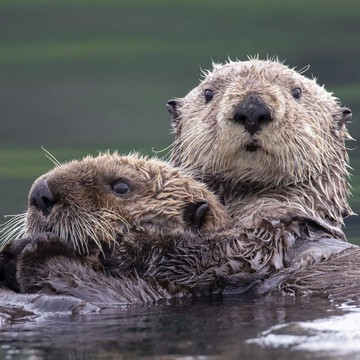
22 snips
Jun 5, 2024 • 1h 24min
Answers to the Questions of life: Biomimicry, Complexity and Peacebuilding with Dr Deborah Benham
Dr. Deborah Benham, a Biomimicry Educator and Deep Nature Connection facilitator, discusses building a world based on connection and community. Topics include regenerative practices, assigning monetary value to nature, indigenous sustainable practices, redesigning culture with biomimicry, and connecting with nature for sustainable living.
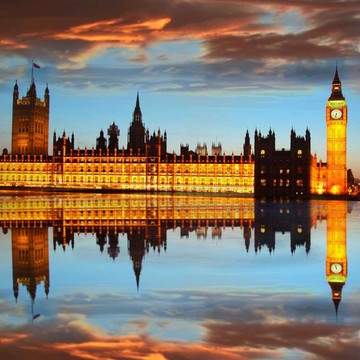
Jun 4, 2024 • 37min
Breaking the Doom-Loop of UK Politics with Neal Lawson of Compass
Buy Manda's book hereOur first Election Special with friend of the podcast, Neal Lawson.Neal is Director of the progressive campaign group, Compass and co-host of the Compass podcast ,called It's Bloody Complicated. Neal is a long-time progressive campaigner and a tireless advocate for Proportional Representation as a vehicle for radical progressive change in the way we do politics. In this swift half hour, we look at the circumstances of this utterly unexpected election and Neal explains the practical steps we can take between now and polling day with the aim of brining about what he calls a progressive 'Pitch Invasion' that will fundamentally upgrade and update the way we arrange our governance structures... Neal Lawson on Twitter https://x.com/neal_compassCompass https://www.compassonline.org.uk/Neal in Episode #150 https://accidentalgods.life/charting-a-progressive-route-through-the-political-maelstrom/https://accidentalgods.life/charting-a-progressive-route-through-the-political-maelstrom/
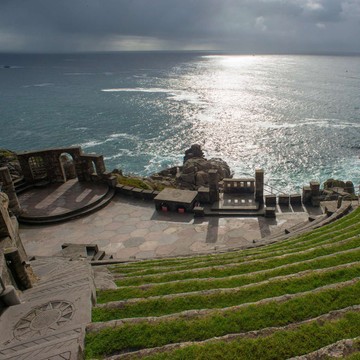
May 29, 2024 • 1h 7min
Wild shamanic theatre and becoming embodied: with Jessica Buckler of the ALEF Trust
Jessica Buckler, a transpersonal psychologist, explores the intersection of shamanic practices and modern science in social prescribing. She discusses embodying nature in a shamanic journey, navigating governance challenges, and the importance of embodied practices for community connection and conscious living.
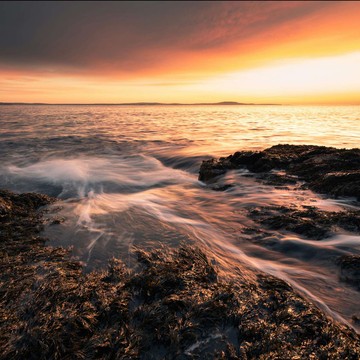
14 snips
May 22, 2024 • 1h 5min
The Story is in our Bones: Rewilding Ourselves with author and activist Osprey Orielle Lake
Author and activist Osprey Orielle Lake discusses her book 'The Story is in our Bones', delving into Indigenous wisdom, climate justice, and the urgent need for systemic change. She shares childhood encounters with Indigenous ceremonies, explores time through stars, and emphasizes the importance of a just transition for environmental justice. A powerful episode on rewilding ourselves and reshaping our worldviews for a sustainable future.
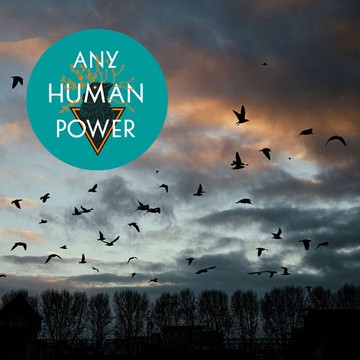
May 15, 2024 • 1h 31min
Any Human Power - Manda Scott talks about her new Thrutopian Mytho-Political thriller
In this captivating discussion, Maddy Harland, editor of Permaculture Magazine, interviews Manda Scott, a bestselling author renowned for weaving myth and political themes. They dive into Manda's new novel, which explores generational struggles for change amid societal crises. The conversation touches on the importance of embracing mortality, navigating political dynamics like Brexit, and the need for intergenerational collaboration. Manda reveals how fiction can inspire real-world activism and dreams of creating a better future through storytelling.
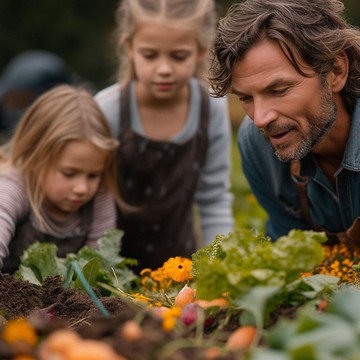
May 8, 2024 • 1h 12min
No such thing as Waste, No such place as 'Away'! - Composting our way out of the meta-crisis with Nicky Grady Scott
Join Nicky Grady Scott, a master composter, as he dives into the world of composting, soil health, and creating a sustainable future. Learn about turning waste into soil, the importance of regenerative cycles, and practical composting tips for everyone. Discover how composting can contribute to sustainability, food security, and job creation. Get inspired to transform your food scraps into a force for regenerative change!
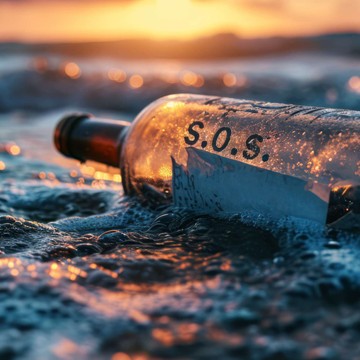
May 1, 2024 • 49min
Writing the Deluge: Dark nights, Apocalypse and Hope with author Stephen Markley
Author Stephen Markley opens the doors to The Deluge, his ground-breaking, world-changing Climate/MetaCrisis thriller- 900 pages that absolutely squarely rips into the current system in all its deficiencies - and offers a route through to a future that might work. This week's guest is someone who has mapped out a possible future in a depth and detail that leaves me awestruck. Stephen Markley's first published novel Ohio, was described as a wild, angry, and devastating masterpiece of a book. Stephen King called it this generation's Grapes of Wrath and there is no doubt that it's a beautifully written, lyrical, devastating debut. But it turns out Ohio was the book he wrote in the midst of writing the novel we're going to talk about today. The Deluge is nine hundred pages of astonishing depth and breadth that takes as its topic the meta-crisis. It's an excoriating evisceration of neoliberalism and the thousands of small acts of mendacity or cowardice or sheer self-absorption that have got us to the edge of the cliff. It's an examination of just how close we are, and a portrayal of how utterly catastrophic will be the impacts if we step over. It's a deeply political book, but at heart it's also incredibly humane, with a cast of characters that spreads across contemporary American life in ways that I have rarely, if ever, encountered. I read the book and connected with Stephen because Rupert Read, who was with us last week, called me up and said 'This is a glorious Thrutopian novel, you have to read it.' And there were times when I completely did not believe him. But he's right. it's big. It requires huge dedication. But it's well, well worth the investment in terms of the doors it opens - and the many ways it shows us how we might fail before we finally succeed. Stephen's website https://www.stephenmarkley.com/The Deluge https://uk.bookshop.org/p/books/the-deluge-stephen-markley/7544942?ean=9781982123109


